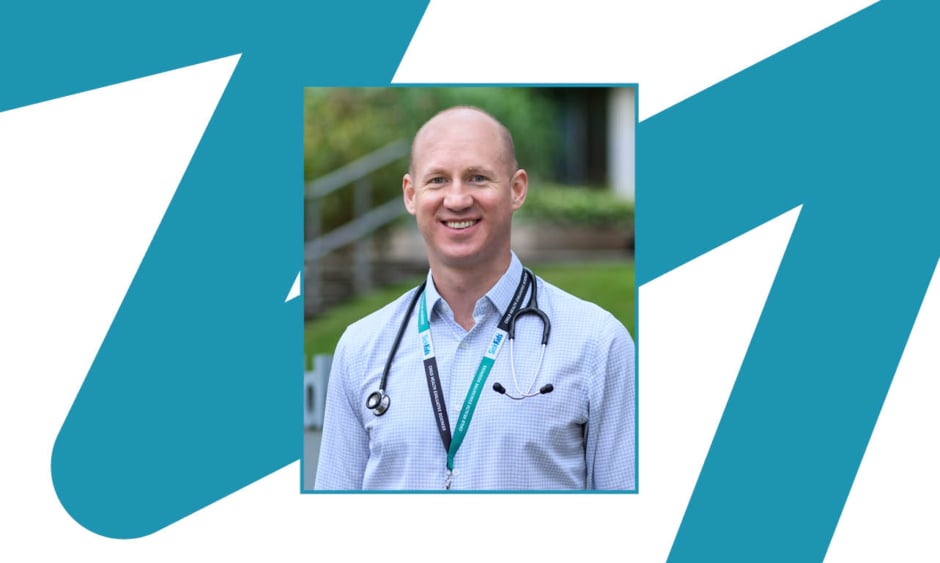Peter Gill | Staff Paediatrician and Associate Scientist, The Hospital for Sick Children and SickKids Research Institute, Toronto, Canada; Assistant Professor, Department of Paediatrics and Institute of Health Policy, Management and Evaluation, University of Toronto, Canada
Citation: EMJ. 2023; DOI/10.33590/emj/10302169. https://doi.org/10.33590/emj/10302169.
![]()
What led you to pursue a career in medicine and what made you decide that paediatrics was the specialty for you?
Ever since I was young, I have wanted to be a paediatrician. I had a fantastic paediatrician as a child, who made going to the doctor fun, exciting, and interesting. As I teenager, my passion grew for science, leadership, and medicine. I have always loved working with children, from coaching football camps to running programmes and summer camps for children with disabilities. These passions continued when I started university and I have not looked back since!
Your research programme focuses on improving the evidence base for children hospitalised in general paediatric settings, particularly for conditions that have important long-term impacts. Can you explain what this research involves?
My research focuses on improving the care and outcomes for hospitalised children on the general paediatric ward. I lead an outcomes-based research programme, which focuses on comparative effectiveness of clinical care in real-world settings, the patient perspective, and system performance. I co-lead a research group with Sanjay Mahant, where we focus on large, multicentre studies to generate evidence on effectiveness and patient-oriented outcomes. We also conduct studies using large health administrative databases, evaluating the cost and health system impact of common and highly prevalent conditions. Lastly, we work closely with patients as partners, to ensure that we understand and focus on outcomes that matter most to children and families.
What are some of the paediatric conditions that have a long-term impact and need more attention?
As general paediatricians, we take care of hospitalised children and youth on the general paediatric ward, which represents approximately one-quarter of all hospital admissions. In this setting, we care for a range of conditions, including previously healthy children hospitalised for acute, common illnesses like bronchiolitis, children with a chronic disease like asthma, and children with medical complexity who are hospitalised for a variety of reasons. Some of the specific conditions which have may long-term impacts include acute illnesses such as urinary tract infections, orbital cellulitis, and severe acute respiratory syndrome coronavirus 2 infection. There are still many important gaps on long-term impacts for these and other conditions.
What does some of your current research involve, and how will this impact future patient care?
My research focuses on several different conditions, reflecting the breadth of children cared for on the general paediatric ward. For example, a major focus is bronchiolitis, the most common reason children under the age of 2 are hospitalised. I lead a multicentre study that aims to understand parent involvement in decision-making related to the choice of supplemental fluids, either intravenous (IV) or a nasogastric (NG). Both IV and NG fluids are safe and effective, yet in North America over 90% of hospitalised infants receive IV fluids. Interestingly, surveys of parents whose children have had both IV and NG show that NG fluids are preferred. Why is there a discrepancy? Our study will provide important information on safety and effectiveness of IV and NG fluids in bronchiolitis, a condition with a major health system impact, but will also inform how we can increase parent involvement in decision-making.
What inspired you to start the open-source paediatric medical education website PedsCases?
When I started medical school in 2006, we had 30–40 hours of mainly didactic lectures. The curriculum was also longitudinal, where most paediatric content was interspersed throughout courses. This inspired me to co-found PedsCases, an open-source website that uses various learning modalities to assess and teach paediatric knowledge. By challenging students to personalise learning, to contribute to the learning of others, and by providing a creative integration of evidence-based medicine, PedsCases sought to fill the gap between theory and practice, while generating free content for others to use. Currently, PedsCases is embedded in undergraduate paediatric education curricula across Canada, with over 5 million podcast downloads of over 150 podcasts.
You also co-founded the Canadian Paediatric Inpatient Research Network (PIRN). What is the aim of this network and what is your role in this organisation?
The Canadian PIRN is a hospital-based research network that aims to improve the evidence base and outcomes for hospitalised children in general paediatric settings. Established in 2019, PIRN includes all 17 academic paediatric hospitals across Canada and 4 large community hospitals in Ontario, Canada. The network conducts multicentre patient-oriented research to serve patients and their families, clinicians, researchers, and health system decision makers. I co-founded PIRN with my colleague Sanjay Mahant, and helped establish the initial Executive Council, of which I am Vice-Chair. I also led a foundational priority setting partnership that identified the top 10 unanswered research questions in paediatric hospital care, and helped to establish partnerships with key stakeholders, including patient and family advisory groups.
Tell us about your role in Canadian Institutes of Health Research (CIHR) Institute of Human Development, Child and Youth Health Advisory Board, and how this translates into policies in paediatric healthcare.
I have actually just finished my term as a member of the Institute Advisory Board (IAB) of the CIHR Institute of Human Development, Child and Youth Health, which has been an absolute privilege. As member of the IAB, my role was to represent the scientific and research community, and act in an advisory capacity to the Scientific Director of the Institute. This included providing feedback on potential research priorities and strategies, and implementation plans for engaging the broader research community.
What are the current gaps in knowledge in paediatric healthcare that should be addressed in the near future?
Evidence-based medicine, as coined by the late David Sackett, is the integration of the best available evidence, clinical expertise, and patient perspective. With the growing focus on data science, artificial intelligence, and machine learning, we cannot lose sight of the importance of the voice of children, youths, parents, caregivers, and families. There are major gaps in how we integrate the patient perspective into medical decision-making with the growing complexity of healthcare, and these need concerted efforts to address. Further, there are major limitations to conducting clinical trials in paediatrics, ranging from regulatory, cost, complexity, and scale. Without major investments in clinical trial infrastructure, including comparativeness effectiveness research on routinely used but off-label medications, paediatrics will continue to fall behind adults in new treatments.
How do you see the future of the field and where can we expect to see your focus lie in the coming years?
The future of paediatrics is exciting, with a growing focus on developing novel therapies, the integration of data sciences into clinical care to identify prognostic factors or predictors of response to therapy, and the recognition of health equity. However, the past few years have also highlighted the threat of misinformation, poorly conducted research, and the implementation gap. As a general paediatrician, I am continually reminded and humbled by patients and families of what matters to them. I will continue to focus on questions driven by patients and families, including the better integration of the patient perspective and voice into medical decision-making, and how we can bring the best available research evidence to patients to improve care.
Throughout your career so far, what has been your proudest achievement?
After establishing the Canadian PIRN, we felt it was important to have our work informed by parents and families. With support from a large team, I obtained grant funding from the CIHR to seek broad input from parents, caregivers, children, youths, and clinicians on the top research priorities for paediatric hospital medicine, using the James Lind Alliance Priority Setting Partnership methodology. This seminal work, which was overseen by a steering group of parents, youth, paediatricians, and nurses, identified the top 10 most important unanswered research questions. The project was published in JAMA Network Open1 with a commissioned editorial,2 and highlighted nationally by CIHR as an exemplar of partnering with parents and patients.3 I am proud of this project, which put the voice of patients and front-line clinicians at the forefront of guiding where research should focus.
References
Gill PJ et al.; Canadian Pediatric Inpatient Research Network. Patient, caregiver, and clinician participation in prioritization of research questions in pediatric hospital medicine. JAMA Netw Open. 2022;5(4):e229085.
Srivastava R, Wilson K. Improving outcomes for hospitalized children—include the voice of the patient and caregiver when prioritizing for implementation. JAMA Netw Open. 2022;5(4).
Canadian Institutes of Health Research (CIHR). Network engages patients and parents as co-researchers in pediatric care. 2022. Available at: https://cihr-irsc.gc.ca/e/53220.html. Last accessed: 6 February 2022.








